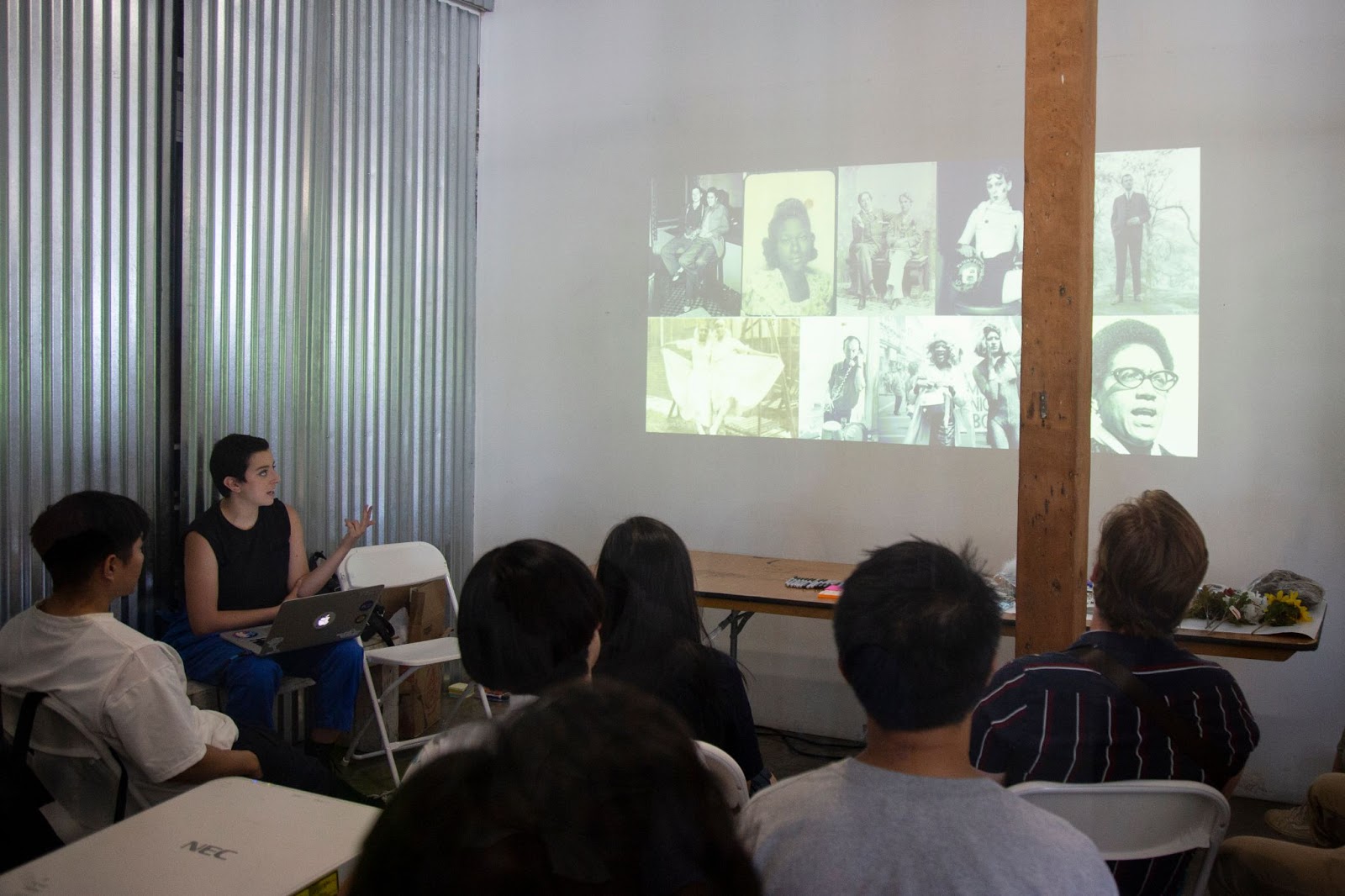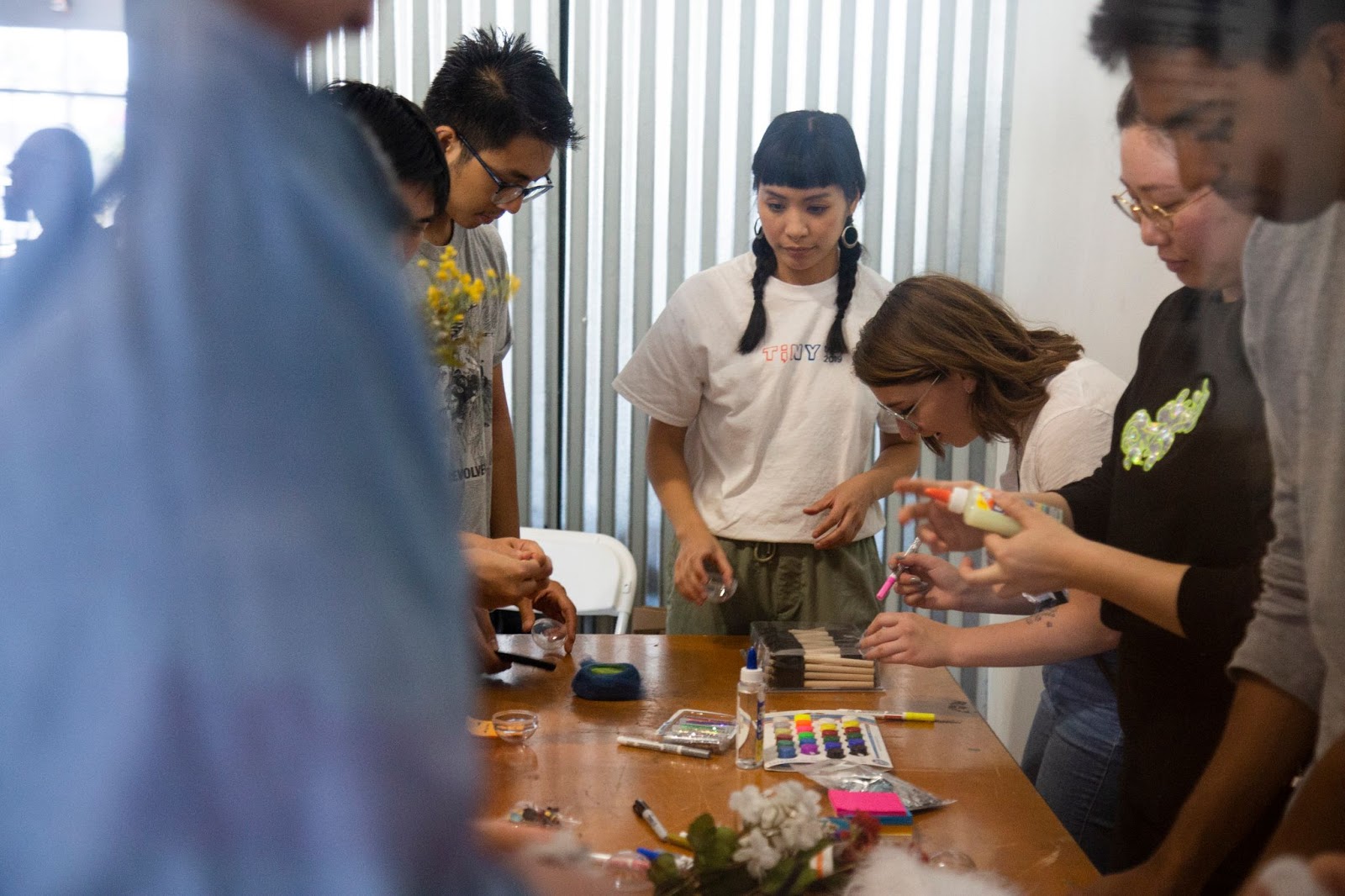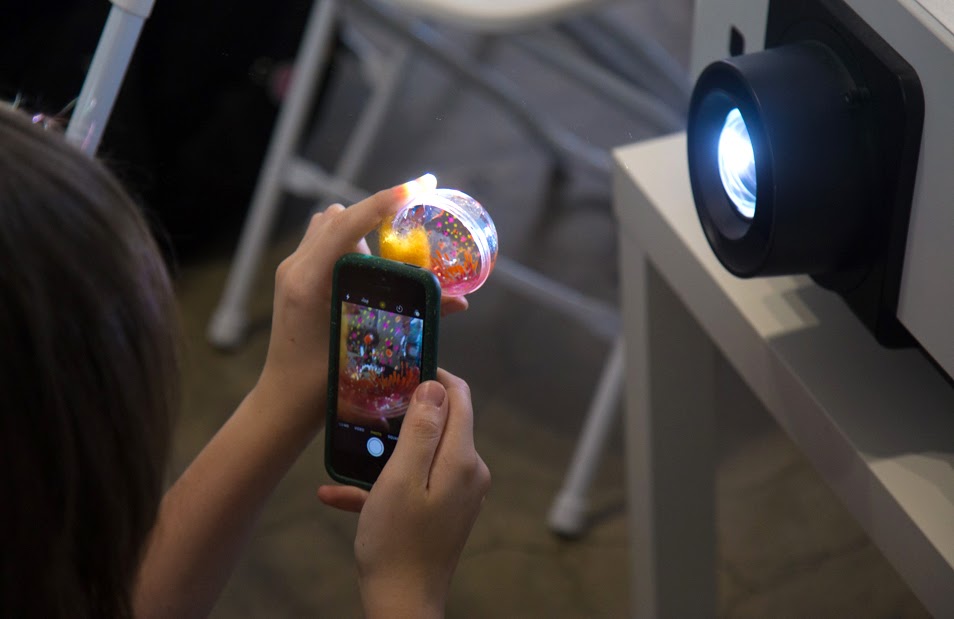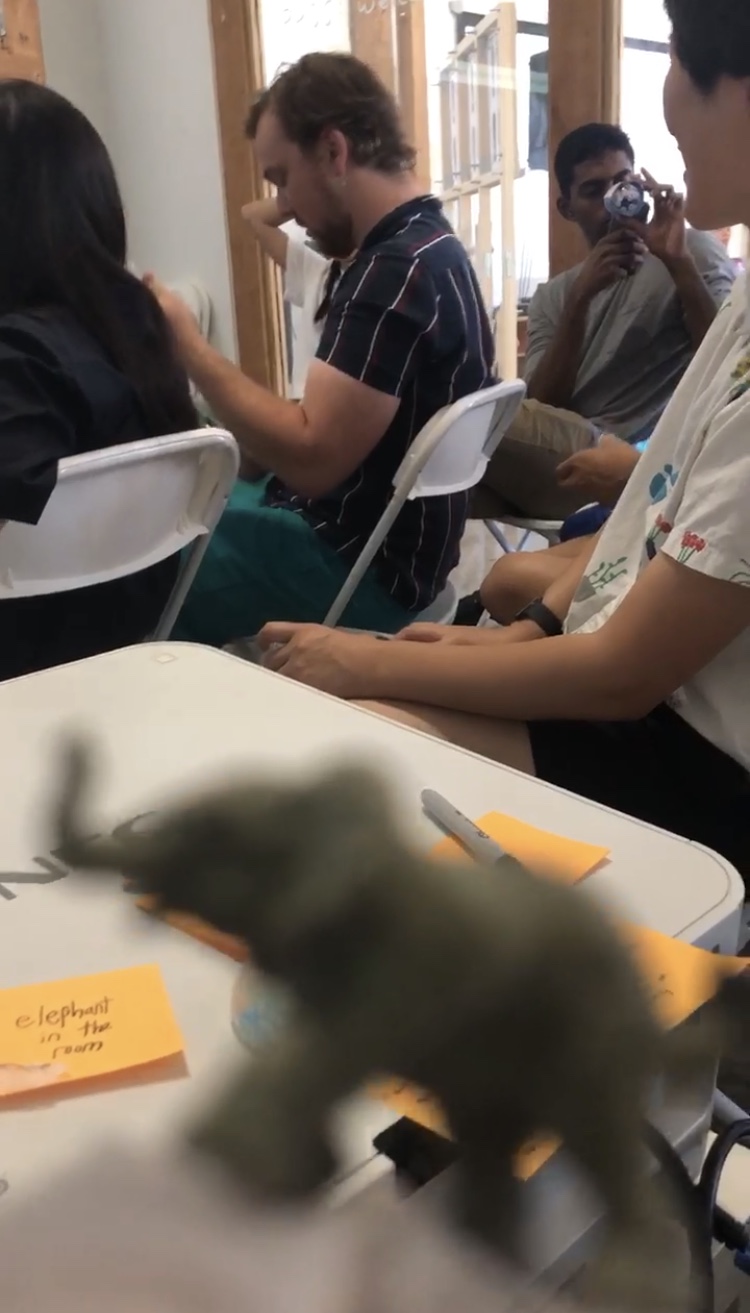Speculative Camera Filters
I originally taught Speculative Camera Filters at Tiny Tech Zines fair in Los Angeles in 2019, followed by further iterations at STACKED Expo and at Pepperdine University.

We know that graininess and sepia tones generate nostalgia, but how do invent more complex emotional and personal landscapes through the use of filters? What would a gender-euphoric filter look like? A hangry filter? An itchy filter? A gregariously sleep-deprived filter? A petty jealousy filter?

In this workshop, we used analog craft materials and everyday objects to “reverse-engineer” camera filters to better understand their emotional impact. We explored the potential for “filters” to modulate or manipulate emotional responses to images and footage. In this context, a “filter” is anything from a color photogel, to graininess in old film, to a shader in a 3D game, or even our most literal contemporary interpretation: the face filter.
Working from a mix of pre-written and workshop-generated prompts, participants created their filter inside of a plastic half-sphere and recorded images and footage with the half-sphere overlaid on their phone camera. Through the workshop, we investigated the ways in which filters can be used to influence perception, in order to better understand how they can embed biases into technology we assume to be neutral.
 Stepping Outside and Blinking at the Sun by Sara Haas
Stepping Outside and Blinking at the Sun by Sara Haas
Elephant in the Room by Veronica Rowan
Future Citizens Celebrating the End of Work by M. James Becker